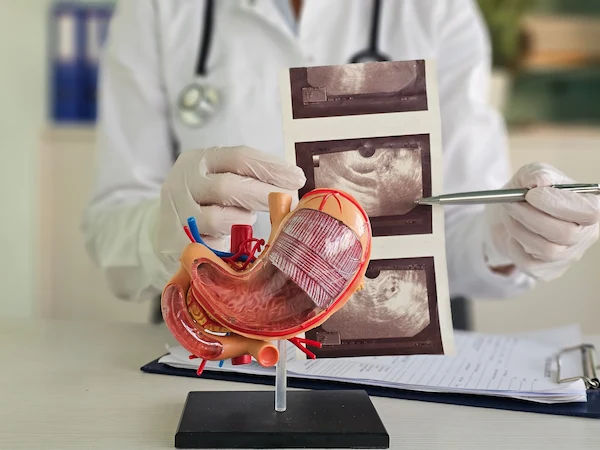Understanding Serological Tests and Their Processes
Learn what serological tests are, how they work, why they’re done, and what results mean. Understand their uses, limitations, and role in diagnosing past infections, immunity, and autoimmune diseases.

Written by Dr. Rohinipriyanka Pondugula
Reviewed by Dr. Shaik Abdul Kalam MD (Physician)
Last updated on 29th Aug, 2025

When it comes to diagnosing infections, immune responses, or certain medical conditions, doctors often rely on serological tests. These tests analyze a small sample of your blood to detect antibodies or antigens, helping healthcare providers understand whether you’ve been exposed to a virus, bacteria, or other pathogens.
If you’ve ever been curious about how these tests work, why they’re important, or what to expect during the process, this article will guide you through everything in simple terms.
What Are Serological Tests?
Serological tests, also called antibody tests, examine your blood serum (the liquid part of blood) to detect antibodies, proteins your immune system produces in response to infections. These tests can also identify antigens, which are foreign substances (like viruses or bacteria) that trigger an immune response.
Why Are These Tests Done?
- To check if you’ve had a past infection (e.g., COVID-19, hepatitis, dengue).
- To confirm immunity after vaccination.
- To diagnose autoimmune diseases (like lupus or rheumatoid arthritis).
- To screen for allergies or blood compatibility before transfusions.
Consult an Specialist for the best advice
How Do Serological Tests Work?
1. Sample Collection
A healthcare professional will take a small blood sample, usually from a vein in your arm. The process is quick and
similar to routine blood tests.
2. Laboratory Analysis
Your blood sample is sent to a lab, where technicians test it for specific antibodies or antigens. Different methods are
used, such as:
- ELISA (Enzyme-Linked Immunosorbent Assay) – Detects antibodies by using enzymes that produce a color change.
- Rapid Tests – Provide quick results (often within minutes) but may be less accurate than lab tests.
- Neutralization Tests – Measure how well antibodies can neutralize a virus.
3. Interpreting Results
- Positive Result: Means antibodies or antigens were detected, indicating past infection or immune response.
- Negative Result: No antibodies found, which could mean no prior exposure or that it’s too early for antibodies to
develop. - False Positives/Negatives: Sometimes, tests can give incorrect results due to timing or test limitations.
What Do Serological Tests Tell Us?
1. Past Infections
If you had a disease like COVID-19 or dengue but weren’t tested at the time, a serological test can confirm if your body
developed antibodies against it.
2. Immunity Status
After vaccination (e.g., measles, hepatitis B), these tests can check if your immune system responded well.
3. Autoimmune Conditions
Some diseases (like lupus) cause the body to attack itself. Serological tests help detect abnormal antibodies linked to
these conditions.
4. Blood Compatibility
Before blood transfusions or organ transplants, these tests ensure donor and recipient blood types match.
Limitations of Serological Tests
While helpful, these tests have some limitations:
- Timing Matters: Antibodies take time to develop. Testing too soon after infection may give a false negative.
- Cannot Diagnose Active Infections: They detect past exposure, not current infection. For active infections, PCR or antigen tests are better.
- Cross-Reactivity: Some tests may react to similar viruses, leading to false positives.
Preparing for a Serological Test
- No special preparation is usually needed, but check with your doctor.
- Stay hydrated to make blood collection easier.
- Inform your doctor about any medications, as some can affect results.
When Should You Get Tested?
Consider a serological test if:
- You suspect you had an infection but weren’t tested.
- You want to check immunity after vaccination.
- Your doctor recommends it for autoimmune disease screening.
If you’re unsure, consult a healthcare provider to determine if testing is right for you.
Managing Your Health Based on Results
If Positive:
- Past Infection: You may have some immunity, but consult your doctor on precautions.
- Autoimmune Condition: Further tests and treatment may be needed.
If Negative:
- You may still be at risk if exposed to the infection recently.
- Consider vaccination if recommended.
Final Thoughts
Serological tests are valuable tools in understanding your immune health. While they don’t replace other diagnostic tests, they provide crucial insights into past infections, immunity, and certain diseases.
If you think you need a serological test or have questions about your results, Apollo 24|7 makes it easy to book a consultation or schedule a test from the comfort of your home.
Consult an Specialist for the best advice
Consult an Specialist for the best advice

Dr. J T Hema Pratima
General Practitioner
9 Years • MBBS, Fellowship in Diabetes Mellitus
Chennai
Apollo 24|7 Clinic - Tamilnadu, Chennai
(350+ Patients)

Dr. Siri Nallapu
General Practitioner
5 Years • MBBS
Hyderabad
Apollo 24|7 Clinic, Hyderabad

Dr Divya Lekha Gunta
General Practitioner
10 Years • MBBS, MD (Pathology)
Visakhapatnam
Apollo 24|7 Clinic - Andhra Pradesh, Visakhapatnam

Dr. Mainak Baksi
General Practitioner
13 Years • MBBS , MD (MPH)
Howrah
Mainak Baksi Clinic, Howrah
(50+ Patients)

Dr. Rajib Ghose
General Physician/ Internal Medicine Specialist
25 Years • MBBS
East Midnapore
VIVEKANANDA SEBA SADAN, East Midnapore
Consult an Specialist for the best advice

Dr. J T Hema Pratima
General Practitioner
9 Years • MBBS, Fellowship in Diabetes Mellitus
Chennai
Apollo 24|7 Clinic - Tamilnadu, Chennai
(350+ Patients)

Dr. Siri Nallapu
General Practitioner
5 Years • MBBS
Hyderabad
Apollo 24|7 Clinic, Hyderabad

Dr Divya Lekha Gunta
General Practitioner
10 Years • MBBS, MD (Pathology)
Visakhapatnam
Apollo 24|7 Clinic - Andhra Pradesh, Visakhapatnam

Dr. Mainak Baksi
General Practitioner
13 Years • MBBS , MD (MPH)
Howrah
Mainak Baksi Clinic, Howrah
(50+ Patients)

Dr. Rajib Ghose
General Physician/ Internal Medicine Specialist
25 Years • MBBS
East Midnapore
VIVEKANANDA SEBA SADAN, East Midnapore




